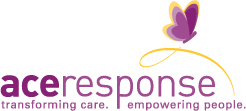Give Your Support
Workforce Development
21st century social service literature increasingly explores the important role of leadership in creating effective organizations. Successful leaders operate from principle and vision, orient toward service, and empower individuals to achieve their highest developmental capacities.
Leadership sets the tone around which a culture develops and sets policies that can help create supportive systems promoting recovery and transformation from ACEs and other life traumas. For-profit and non-profit organizations across all service sectors can cut down on costs while working to develop such a culture and investing in ACE prevention.
Developing a Working Culture of Support
While ACEs and current stressors have the potential to impact our health and well-being, healthy coping, resources, and support helps us to bounce back, counter, and prevent negative consequences. Leaders can develop an agency culture that supports the workforce, promoting self care and preventing burnout and vicarious traumatization.
Social service agencies can intentionally develop healthy environments and relationships that support (HEARTS). This kind of compassionate culture facilitates the personal development of staff, many of whom have identified their own ACE Scores, who then create a therapeutic community for clients recovering from ACEs.
In order to develop HEARTS to empower staff and clients within an agency, leaders engage in their own self care which fosters the ability to role model. Leaders set the example for staff who role model how to be well-regulated adults for the clients.
Self care by staff persons is crucial to accomplishing relationship-building and role modeling.
HEARTS empower staff in self care practices. Cooperation and mutual aid take place in the context of HEARTS as staff support one another in their transformation processes.
The Committee on the Shelterless (COTS) provides a great example of how leadership and staff develop HEARTS for homeless people overcoming ACEs.
Tools for Workforce Development
-
Restorative Integral Support (RIS) Exercises - Explore your sense of purpose, resources for support, and understanding of ACE Response with these reflective exercises, which appeared on the Substance Abuse and Mental Health Services Administration (SAMHSA) Homelessness Resource Center webpage.
-
Professional Development Webinars - An extensive list of previously recorded webinars covering everything from ACEs to resilience and prevention strategies. The webinars were hosted by the New York State Parenting Education Partnership (NYSPEP) and are free, all you have to do is register!
-
ACE Response Online Course - Take this free online training course developed at the University at Albany School of Social Welfare to learn more about childhood adversity, trauma, resilience, and ways of responding to ACEs.

